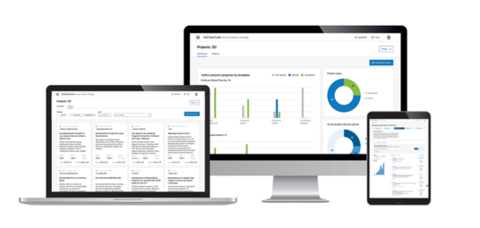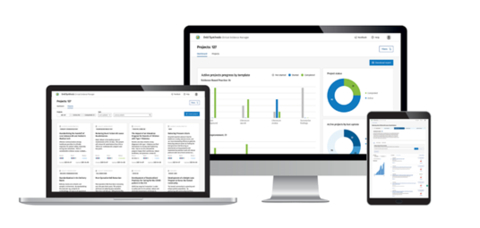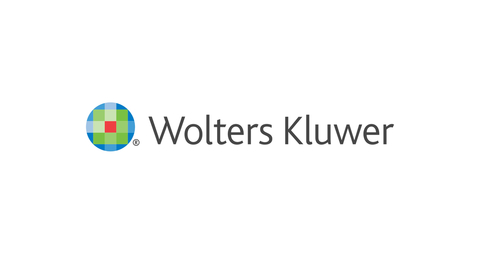WALTHAM, Mass.--(BUSINESS WIRE)--Wolters Kluwer Health today announced that three of the top children’s hospitals in the US have adopted Ovid® Synthesis to meet their clinical research needs. At a time when medical research is moving at a break-neck pace, it is more important than ever for hospitals and health systems to rely on trustworthy, evidence-based practice (EBP) workflow applications—especially when children’s care is on the line.
“These highly regarded healthcare organizations have built cultures where evidence-based medicine is practiced at the highest level. By leveraging this expert solution, each hospital can now standardize processes, increase communication, collaboration, and dissemination, while removing 100% of duplicative clinical research efforts to improve clinical expertise and healthcare decisions,” said Rafael Sidi, Senior Vice President & General Manager of Health Research at Wolters Kluwer.
Innovation to help shape the future of children’s healthcare
Children’s Hospital of Philadelphia, Stanford Health Care and Children’s Medical Center of Dallas have recognized Ovid Synthesis as an essential solution to assist in achieving ANCC Magnet® status and will leverage this workflow tool to help streamline research infrastructure. The innovative leadership at these world-renowned children's hospitals will utilize Ovid Synthesis to standardize evidence-based practice, increase rigor of projects and catalyze medical research. Additionally, the AI-enabled technology allows these health systems to more efficiently manage EBP, literature reviews and clinical research projects and improve patient outcomes.
When implementing Ovid Synthesis across their systems, customers are commenting on how it will help promote a culture of clinical inquiry, innovation, and collaborative practice. They recognize how this technology will allow healthcare professionals to seamlessly work on system-wide programs, evidence-based practice, and nursing research that will help fuel exceptional care for every child.
Children’s hospitals are now consistently seeing value in an innovative solution to meet these requirements and the highlighted institutions each have specific goals for their Ovid Synthesis launch.
- Children’s Hospital of Philadelphia will apply Ovid Synthesis to support their culture of EBP, helping standardize their projects while providing novice-to-expert guidance to deliver the highest quality care for patients.
- Stanford Health Care has launched a unique one-year registered nurse residency program where Ovid Synthesis provides new nurses with the evidence-based foundation that is needed to help transition into the highly complex, fast-paced acute care environment. Additionally, they will leverage the EBP and quality improvement solution to standardize and catalyze improvements across their system.
- Children’s Medical Center of Dallas will further a passion for EBP by leveraging Ovid Synthesis to support robust clinical research studies and quality improvement projects to help improve patients’ and their loved ones’ lives.
Creating a culture of evidence-based practice
Many health systems are still facing a fragmented technology view where staff-produced projects live in siloed systems and offer little insights for leadership review and input—hindering utilization for quality improvement (QI) and leading to staff burnout. However, using Ovid Synthesis, health systems can empower clinical staff to become fluent in EBP while improving staff retention, supporting professional development, and ensuring excellence in QI and research for improved patient outcomes.
Sidi added, “with Ovid Synthesis, Wolters Kluwer Health has built a next-generation, evidence-based workflow solution that was developed in close partnership with healthcare providers, meeting the demanding challenges which hospitals work in every day.”
About Wolters Kluwer
Wolters Kluwer (EURONEXT: WKL) is a global leader in information, software, and services for professionals in healthcare, tax and accounting, financial and corporate compliance, legal and regulatory, and corporate performance and ESG. We help our customers make critical decisions every day by providing expert solutions that combine deep domain knowledge with specialized technology and services.
Wolters Kluwer reported 2022 annual revenues of €5.5 billion. The group serves customers in over 180 countries, maintains operations in over 40 countries, and employs approximately 20,900 people worldwide. The company is headquartered in Alphen aan den Rijn, the Netherlands.
For more information, visit www.wolterskluwer.com, follow us on LinkedIn, X, Facebook, and YouTube.
For more information about our solutions, visit https://www.wolterskluwer.com/en/health and follow us on LinkedIn and Twitter @WKHealth




